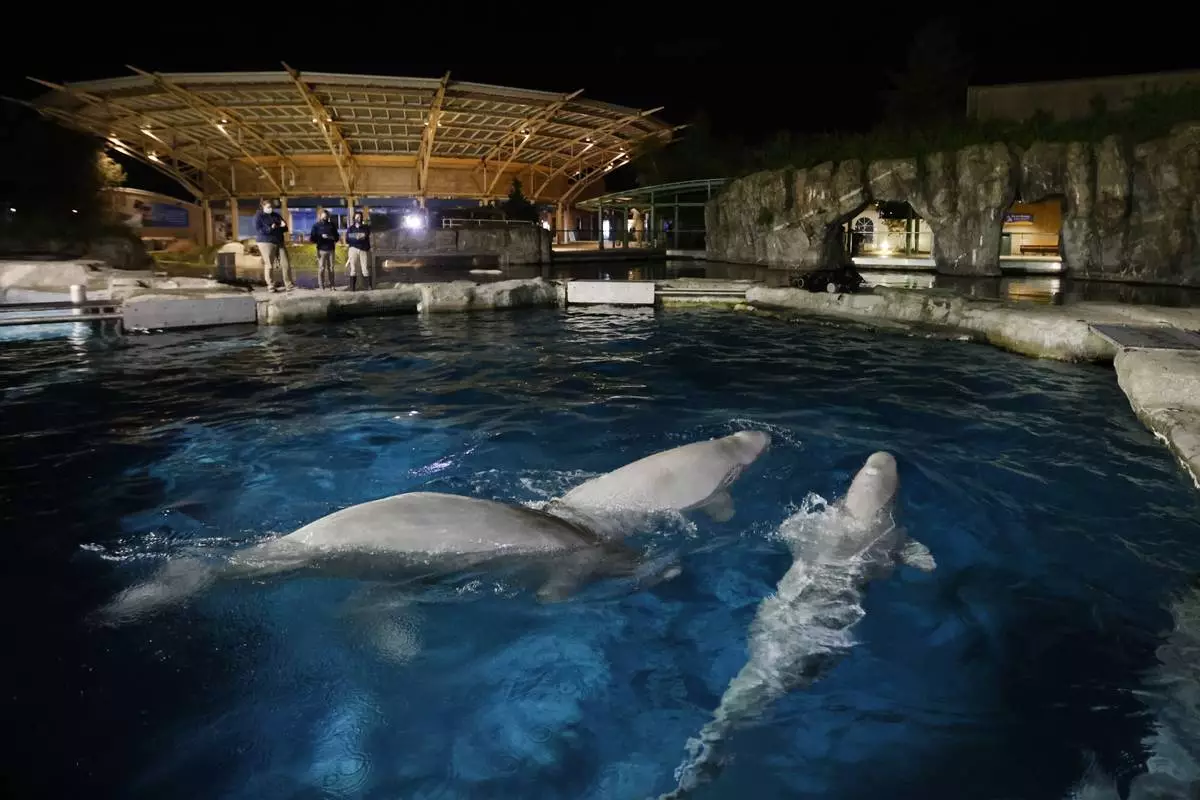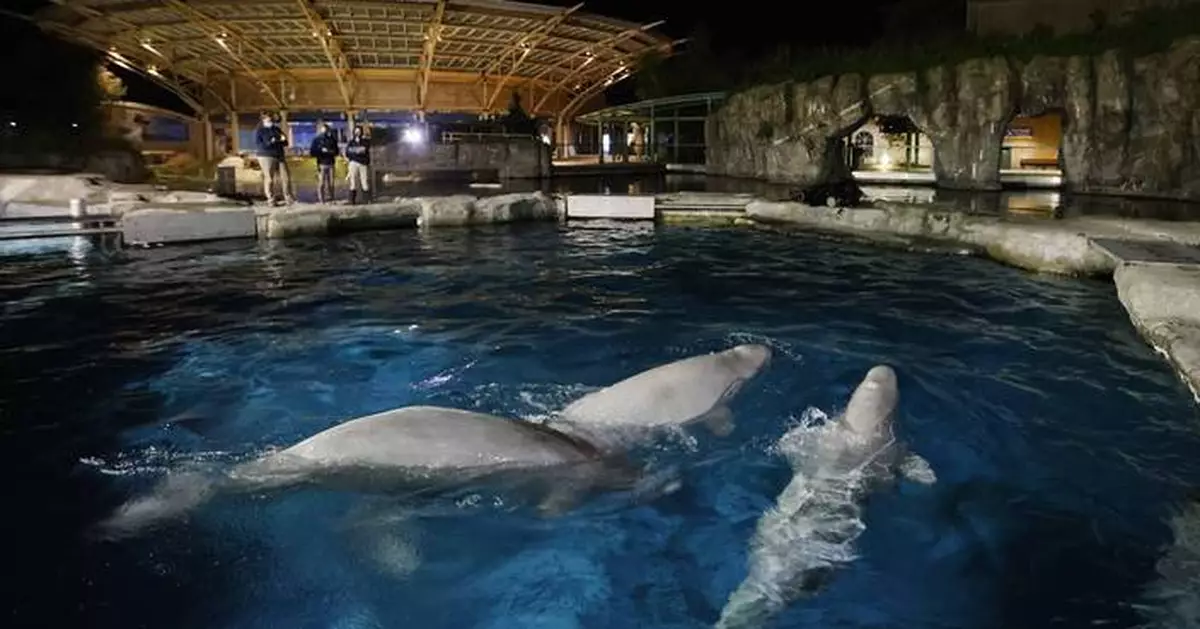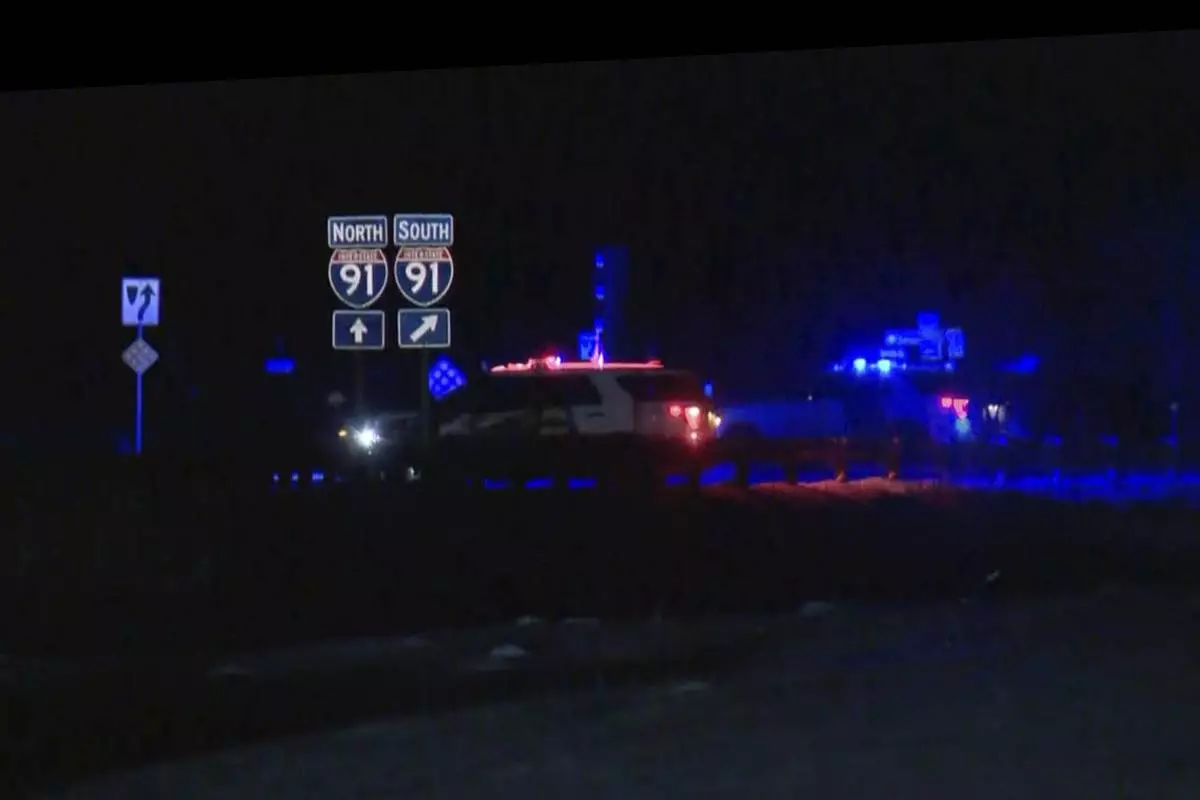A Connecticut aquarium where three beluga whales died in recent years has agreed to settle a federal investigation over alleged animal care and water quality violations by paying a $12,200 fine while not admitting or denying the accusations.
The whales died from illnesses after being brought to Mystic Aquarium from Canada in 2021, according to the aquarium. The U.S. Department of Agriculture proposed the settlement on Aug. 13. The aquarium agreed to the conditions, a spokesperson said Wednesday, adding that there was disagreement over whether violations occurred.
The alleged violations cited by the Department of Agriculture played no role in the deaths of the three whales, said Meagan Seacor, vice president of external relations for the aquarium. The whales had pre-existing health problems that were not detectable before they arrived in Mystic, she said.
The three whales were among five that were brought to Mystic in 2021 from Marineland in Niagara Falls, Ontario, after a lengthy legal battle to obtain permits from both the U.S. and Canada.
In August 2021, a 5-year-old male beluga whale named Havok died from an intestinal disease. Two female whales, Havana and Kharabali, died in 2022 and 2023, respectively, from storage disease, which can damage the brain, spinal cord and other body areas, according to the aquarium. All three whales' health problems were genetic and not curable, aquarium officials said.
Two of the violations cited by the Department of Agriculture related to the care of Havok. The agency claimed aquarium staff failed to call for veterinarian care in the last hours of his life despite observing him exhibiting abnormal behaviors including frequent rolling in the water and other signs of distress.
Federal investigators also said Havoc, who had vision problems, had been injured twice in June 2021, once by ramming himself into a gate while a worker used a net to try and retrieve a foreign object that fell into his tank. He also was wounded by striking posts in the aquarium’s medical pool, authorities said.
The investigators also said testing of the beluga whales' pools in late 2021 showed extremely high levels of coliform bacteria. The settlement agreement said the bacteria may have contributed to some of Havana's medical conditions, but it does not definitively link her ailments to bacteria.
Seacor said the high bacteria levels were the result of a brief period when equipment malfunctioned, and the aquarium took immediate action to fix the equipment and there haven't been similar problems since.
The aquarium agreed to the settlement to avoid costly litigation in challenging the alleged violations, Seacor said.
“While we respectfully disagree with the USDA’s assertions, settling this case allows us to stay focused on our core mission: caring for the animals at Mystic Aquarium and inspiring people to protect marine life,” she said in a statement.
The aquarium's care of the whales has been tracked by several animal advocacy groups.
Naomi Rose, senior scientist for marine mammal biology at the Animal Welfare Institute in Washington, D.C., said Mystic Aquarium had a good reputation for animal care before the whale deaths, but the federal investigation showed significant problems.
“Personally — that’s just me as a professional animal advocate — I think Mystic made a huge number of mistakes," Rose said. "And I really would like them to get more than a slap on the wrist, which in some ways this is."
She added, “I wouldn't say it's just, but ... it's better than nothing.”
Beluga whales, known for their white hue, are smaller whales, generally 11 to 15 feet long (3 to 5 meters) and can weigh up to 2,500 pounds (1,134 kilograms). Their lifespan is around 35 to 50 years in the wild, with some living 80 years or more, according to various wildlife advocacy groups. Mystic Aquarium now has five belugas that live in pools containing a total of 750,000 gallons (2.8 million liters) of water.

FILE - Three beluga whales swim together in an acclimation pool after arriving at Mystic Aquarium, May 14, 2021, in Mystic, Conn. (Jason DeCrow/AP Images for Mystic Aquarium, File)





















































